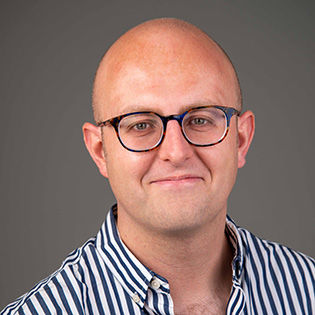Good Bad Books: Our Love Affair with Dystopia
- Location
- Alan Walters Building G11
- Dates
- Tuesday 11 March 2025 (18:00-19:00)

Professor Nathan Waddell Inaugural Lecture
Why do we enjoy reading about suffering? The philosopher Bertrand Russell toyed with the idea that we delight in books like Aldous Huxley’s Brave New World, George Orwell’s Nineteen Eighty-Four, Margaret Atwood’s The Handmaid’s Tale, and Octavia Butler’s Parable of the Sower because we’re thrilled by their horrors.
It may also be the case that bad places, lovingly described, entail their own, counter-intuitive kinds of pleasure. Are good books about bad places a contradiction in terms? Can we learn from the careful attention writers pay to, and their stylish efforts to describe, the worst of all possible worlds?
Reflecting on the history of literary dystopias, in this lecture I’ll suggest that our love affair with dystopia lies in this tension between form and content—in the generative strain between what dystopian novelists write about and how they write about it. Are dystopian books as radical as we tend to think? Or do they enjoyably indulge our fears, compensating for unease with craft?
Nathan Waddell is a Professor of Twentieth-Century Literature at the University of Birmingham. He is the author of Modern John Buchan (2009), Modernist Nowheres (2012), Moonlighting: Beethoven and Literary Modernism (2019), and A Bright Cold Day: The Wonder of George Orwell (2025). He is also the editor of The Cambridge Companion to Nineteen Eighty-Four (2020), the Oxford World’s Classics edition of Orwell’s novel A Clergyman’s Daughter (2021), and The Oxford Handbook of George Orwell (2025), and a co-editor of essay volumes on Buchan, Wyndham Lewis, Aldous Huxley, and utopianism.
Inaugural lectures are a landmark in academic life, held on the appointment of new professorships. Join us to learn more about the work of Professor Nathan Waddell.
The lecture will be followed by a drinks reception.
You can learn more about our other forthcoming talks and view our archive of previous lectures on our CAL Inaugural Lectures webpage.